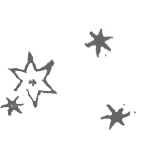Literature
Featured exhibit items for literature.
Exhibit Items
| 1 |
Works of Hesiod Hesiod, (1559) In Works and Days, the poet Hesiod, a roughly contemporary of Homer, compiled guidelines for conducting life and forecasting the weather according to the stars. |
|
| 1 |
The Divine Comedy Dante, (1757) Dante’s love for astronomy pervaded this epic poem. Not by accident did he bring each of the three volumes to a close with the word “stelle,” or star. |
|
| 1 |
Persius Stelluti, Francesco (1630) The title page of this classical study by Stelluti displays the emblem of the Lynx. The crest with three bees is that of the powerful Barberini family. |
 |
| 2 |
Workes, Chaucer Chaucer, (1598) Chaucer’s astronomical knowledge, like Dante’s, was anything but casual; in addition to his stories, this volume also contains his detailed technical manual for use of the astrolabe. |
 |
| 3 |
The Recoverie of Jerusalem Tasso, Torquato (1624) This poem became one of the most widely read works of European literature in the 17th century. Tasso created serious characters with human flaws, psychological depth, and even melancholy, setting them in the inspirational but ambiguous era of the Crusades. |
|
| 3 |
Second Folio Shakespeare, (1632) Planetary and stellar influences affect one’s physical temperament, so one must take steps not to catch the melancholic “influenza” of Saturn: “There’s some ill planet reigns: I must be patient till the heavens look With an aspect more favorable” (A Winter's Tale). |
 |
| 8 |
100 Tales Boccaccio, Giovanni (1925) Eyewitness to Black Plague: In the opening section, the Florentine writer Boccaccio (1313-1375) recounted his observations of the plague. According to Boccaccio, most people died within about three days of the appearance of tumors. |
|
| 11 |
The Star-Splitter Frost, Robert (1923) In a comical ballad called “The Star-Splitter,” Robert Frost described a man outdoors splitting firewood after the first frost of autumn: “You know Orion always comes up sideways. |
|
| 11 |
Paradise Lost Milton, John (1674) Milton’s poem, an epic story of the world, recounts the creation and fall, the life of Christ, and the final consummation. Yet in the midst of these history-changing events, Milton found room to mention Galileo’s telescopic discoveries. |
 |
| 15 |
Conversations on the Plurality of Worlds Fontenelle, (1728) In this dramatic and entertaining dialogue, Fontenelle explained Cartesian philosophy and cosmology and argued for the existence of life on other worlds. He justified a popular writing style by encouraging women and men to engage in pleasant evening conversation together on scientific topics. |





